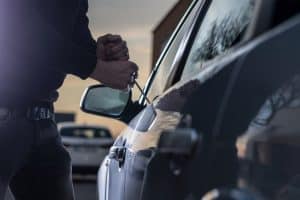Home > Car Insurance > Car Insurance for Learner Drivers
Car Insurance for Learner Drivers
Find out how to get insured as a learner driver and compare policies online.
Author
Savvy Editorial TeamFact checked

Just like any other driver, learner drivers in Australia are required to have car insurance before they get behind the wheel. Young and inexperienced drivers are considered more likely to be involved in incidents on the road, so it’s important that you’re covered whether you’re driving your own car or someone else’s.
If you need to take out a car insurance policy as a learner driver, you can compare offers from trusted Australian lenders online to help you see the options available and ensure you are covered before you hit the road.
What car insurance options are available to learner drivers in Australia?
Learner drivers generally have two options for car insurance:
- Being added to an existing policy
- Taking out a new policy
Which one is best for you depends on whether the car you will be driving belongs to you or someone else.
If you'll be using another person’s car, such as your parents’, you may wish to be added to their car insurance policy. However, if you’re learning in your own car, you’ll have to buy a separate policy.
How can I be added to my parents’ car insurance policy as a learner driver?
Adding a learner driver to an existing policy is usually straightforward. In most cases, the car owner will simply need to contact their insurance provider to inform them that a learner driver will be driving under the policy. Some car insurance policies automatically cover learner drivers, but this may not always be the case, so you should always check your documentation to be sure.
If you’re going to be practising in a parent’s car, it's generally easier (and cheaper) to get yourself added to their existing policy than taking out a new one with a learner’s permit.
However, there are associated costs, such as increased premiums and/or excesses required for young or inexperienced drivers, so it's worth shopping around to help you and your parents find a car insurance policy to buy that offers the best possible value for money.
How can I insure and drive my own car as a learner driver?
While it’s much more common to practise in someone else’s car as a learner, some may buy and use their own car (or have it bought for them), though you’ll still need a qualified supervising driver alongside you every time you drive.
If you own a car and will be its primary driver as you learn, you’ll need to buy learner driver insurance for your car. Having your own car insurance will allow you to start building up your no-claim bonus much sooner, provided you don’t have any incidents that you claim for. However, it’s important to note that your premiums will be higher as a younger, inexperienced driver, as you’re deemed a greater risk of experiencing an accident and needing to make a claim.
How can I save on my car insurance if I’m a learner driver?
There are several ways to save on your car insurance if you’re a learner driver. This includes factors such as:
- Minimising your time on the road
- Maintaining a healthy driving record
- Parking your car in a secure location (such as in a garage)
- Paying your premiums annually instead of monthly
- Only paying for the extras you need
You may also want to weigh up the different premium and excess costs. Lower excesses mean you will pay less if you do have an accident, but you may find yourself paying higher premiums. Alternatively, you could lower your premiums by increasing your excess, though this would mean higher costs in the event of an incident.
What’s the best car insurance for learner drivers?
The best car insurance policy for learner drivers will be that which offers the appropriate amount of cover based on your individual needs and budget. When it comes to choosing car insurance for L-plate drivers, many learners may find it easier and cheaper to add themselves to an existing policy such as their parents’ car insurance policy. However, this won't necessarily be the best choice for everyone, especially if you’re an older learner driver learning in your own vehicle who doesn’t have the option to add yourself to a policy.
The best policy for your needs will also depend on factors such as the excess payable if you have an incident while driving the car, which can vary by hundreds of dollars, and any optional extras available, such as roadside assistance and hire car cover. The car itself can also play a large role, depending on how old and how valuable the car is.
Ultimately, it’s important to take the time to compare policies and coverage options before you buy. If you compare online, you’ll be able to consider instant quotes in one place to help you determine which is the best possible policy for your needs.
Types of car insurance you can choose from
The most basic type of optional cover available, TPPD insurance can offer protection for damage caused by your vehicle to other people's property. However, no damage to your vehicle will be covered.
A step up from TPPD, TPFT insurance can also cover damage to your vehicle sustained due to a fire or theft (or attempted theft) in addition to third-party property damage if you're in an at-fault accident.
The most extensive (and expensive) form of cover, comprehensive car insurance can also offer cover for damage to your vehicle in an accident, collision and certain weather events on top of the areas TPFT covers.
Common questions about car insurance for learner drivers
Learner drivers are considered at greater risk of getting into an accident than more experienced drivers by insurers, which often means higher policy excesses on insurance claims. On top of the standard excess, when making a claim for an incident where an L-plater was driving, other excesses may be payable such as a specific learner driver excess or a young driver excess if you’re under 25.
In some cases, you may be able to lower your excess, but you will have to pay a higher premium to do so.
Learner drivers have more restrictions than fully licenced drivers, and violations may void the car insurance policy the learner driver is covered on, not to mention other penalties such as demerit points or even loss of licence. Violations include:
- Driving without supervision or under unsuitable supervision, such as with a fellow learner driver
- Driving under the influence of alcohol
- Breaking certain road rules, such as driving over the learner speed limit, which depends on the state you are learning in, such as New South Wales and South Australia
You must let your insurer know when you get your P-plates and subsequently your full licence. This will enable them to adjust the price of your policy and any applicable excesses accordingly (should they change).
In most cases, you can continue to be listed on your parents’ policy as a P-plater if you’re continuing to drive their car, but this will continue to impact the cost of the policy if you’re still a young driver.
Helpful guides on car insurance
Compare car insurance policies with Compare the Market
Disclaimer:
Savvy (ABN 78 660 493 194, ACR 541 339) provides readers with a variety of car insurance policies to compare. Savvy earns a commission from our partnered insurers each time a customer buys a car insurance policy via our website. All purchases are conducted via our partners’ websites. The integrity of our comparison service is unaffected by our partnerships with those businesses and our effort remains to bring further brands that do not already use our comparison service onboard.
Savvy’s comparison service includes selected products from a panel of trusted insurers and does not compare all products in the market. Any advice presented above or on other pages is general in nature and doesn’t consider your personal or business objectives, needs or finances. It’s always important to consider whether advice is suitable for you before purchasing an insurance policy. We always recommend readers to consult the Product Disclosure Statement (PDS) of different policies before purchasing your car insurance.









